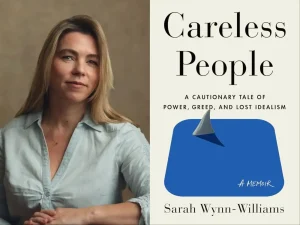Toronto hate crime incidents have increased more than 50 percent over the same time period last year, with antisemitism remaining the top category for hate crime occurrences, the chiefs of Toronto Police Services (TPS) reported at the monthly Police Services Board meeting June 24.
Deputy Chief Robert Johnson, presenting a portion of the monthly update, told the board that hate crime occurrences are up 54.9 percent over the same period last year, and that officers attend an average of five hate crime calls for service daily.
“Antisemitism continues to account for more reported hate crimes than any other category,” said Johnson. “Of the 221 hate crimes so far in 2024, 44.8 per cent were antisemitic.”
As of the last update, May 31, TPS had attended 1,270 suspected hate crime calls for service since Oct. 7, with an average of 159 per month.
“Since Oct. 7 we have attended 1,378 hate crime [occurrence-related] calls for service. We are attending an average of 145 hate crime calls for service a month,” said Johnson on June 24.
On May 31, TPS said there had been 300 suspected hate crimes since Oct. 7, resulting in 94 arrests and 243 hate crime-related charges, The CJN reported.
TPS now says it’s confirmed 333 hate crimes since Oct. 7, 2023, resulting in 107 arrests and 268 hate crime occurrence-related charges, the police board heard.
Johnson said the most common offences are mischief, assault and uttering threats, and that 88 percent of these were crimes against property. (These were also named as the most common offences in the previous update.)
In recent weeks, in addition to six arrests made at the Walk with Israel on June 9, a Jewish girl’s school, Bais Chaya Mushka, was shot at, and two synagogues were vandalized, in separate incidents, leaving a doorframe broken and windows shattered.
The Walk with Israel, attended by a record 50,000 people and drawing a counter-protest its organizers dubbed the “Walk Against Israel” saw demonstrators antagonizing predominantly Jewish attendees of the annual event, both along the parade route and in a number of reported confrontations in neighbouring residential areas.
Charges laid by TPS included one count of public incitement of hatred for a 32-year-old man who police allege displayed antisemitic messaging calling for violence, and two people charged after incidents involving Israeli flags. In one, a 27-year-old man was charged with public incitement of hatred and resisting arrest after he stomped on an Israeli flag and had to be separated from demonstrators. A 22-year-old man was charged with mischief interfere with property for trying to steal a Walk participant’s Israeli flag.
A 37-year-old man was charged with failing to leave premises when directed, and one count each of obstructing and assaulting a peace officer.
A 59-year-old man who TPS alleges “approached counter-protestors, yelled at them, and pushed a camera mounted on a stick into their faces” was warned “several times” before TPS arrested him for causing a disturbance.
A 75-year-old man faces an assault charge for allegedly “intentionally [bumping] into the victim causing her to stumble” when the man crossed paths at Sheppard Avenue West at Bathurst Street with a woman wearing a keffiyeh and holding her child, TPS alleges.
In his portion of the update, Chief Myron Demkiw noted the event was an example of “the high degree of interoperability between all agencies and our private sector partners” for the event that had counted on additional police officers from Hamilton, Niagara, York, and Durham, along with the Ontario Provincial Police.
“We received hundreds of appreciative calls, comments and messages from the community,” he said.
Demkiw once again acknowledged the impacts of the Oct. 7 attacks in Israel by Hamas and the subsequent war on Hamas in Gaza. Police had, at last count, attended demonstrations large and small numbering in the hundreds.
“As a city, we continue to experience the impact of geopolitical events that are causing stress in our communities. Community engagement and building public awareness about our response to the stress our communities are experiencing is essential,” Demkiw told the board.
Demkiw said that TPS’ Jewish liaison officer had made 52 synagogue visits and 45 school visits, including presentations, since Oct. 7, in addition to meetings with Jewish organizations and community groups.
A second Muslim liaison officer was added in February, Demkiw said. In response to feedback from the Muslim community, TPS had begun a new outreach program.
“We are inspired by feedback from youth who express to me the fear and frustration with the hate they are experiencing,” Demkiw said of the new Project Olive Branch community engagement effort.
At the board meeting, an exchange about police costs for special events, touching on the recent example of Walk With Israel from a policing perspective, brought up questions about special events deployments ahead of planning for the Toronto and GTA games and events around the FIFA World Cup in 2026.
Svina Dhaliwal, TPS chief administrative officer, told the board it’s “the footprint of the event itself” that dictates public safety requirements for TPS to follow, along with overall growth trends for local events.
“What we have reported in the last budget process as well as the last couple now is that the cost associated with special events in part is the events themselves are growing… so multiple sites, multiple days,” Dhaliwal told the board about how TPS operates and makes decisions about resource deployments for special events.
Johnson said the force conducts a “risk assessment matrix… to make sure that events that are handled locally, go through a process of evaluation to make sure it’s consistent across the board,” he said regarding whether local divisions need to call in additional TPS resources for events.
“Depending on the intelligence [on] the events… who might show up and those sort of considerations, if it can be handled locally with a local division in their own resources… generally they’re fine to manage that. Oftentimes they’re not. And so we have to look out at other ways to making sure that the event is [resourced …]” said Johnson.
He also said part of that TPS assessment for events includes “who might show up to protest.”
“We can’t forget… the situation that we’re in. Sometimes some of these events raise concern for us and we want to make sure…like the Walk for Israel, for instance, is done in a safe way, and that requires a whole bunch of resources, including community officers,” said Johnson.
“If you look at scope and scale, this weekend is a good example where we have Pride and Canada Day celebrations on the same weekend, which is something unique for us this year,” said Demkiw.
Demkiw said TPS at its current capacity sometimes can’t meet the demands for officers requested for community events.
“We have callouts that go unfilled, because we just don’t have enough police officers to meet the growing demand. This is part of the bigger discussion we’ve had on resourcing over the long term, but we feel it in real practical terms in these conversations in our neighborhoods, in our communities,” he said.
“It stops being an abstract, budget discussion and becomes a real-life neighbourhood discussion,” he said.
During the Walk With Israel, some protesters were spotted, and captured on video posted online, shouting hateful messages while walking around sidewalks and streets in the neighbourhoods adjacent to the Walk and near the Prosserman JCC.
“I just want to reassure the board of something, that when it comes to these massive events, and we’ve seen it recently with the Walk for Israel, we are part of a network of policing in this province, that has all our agencies interconnected for these unique moments,” said Demkiw.
The need for police comes with financial, human resources, and police capacity costs, said Demkiw, who affirmed that TPS is coordinating with the other agencies to build capacity ahead of the FIFA events.
“You’ve seen us travel to other cities to assist and you’ve seen other agencies come into Toronto to assist,” said Demkiw.
“I do want to offer some reassurance that while we get stretched day to day, we are connected to a broader network of policing in the province of Ontario that does come to assist on some of the more monumental events.”
Author

Jonathan Rothman is a reporter for The CJN based in Toronto, covering municipal politics, the arts, and police, security and court stories impacting the Jewish community locally and around Canada. He has worked in online newsrooms at the CBC and Yahoo Canada, and on creative digital teams at the CBC, and The Walrus, where he produced a seven-hour live webcast event. Jonathan has written for Spacing, NOW Toronto (the former weekly), Exclaim!, and The Globe and Mail, and has reported on arts & culture and produced audio stories for CBC Radio.
View all posts








